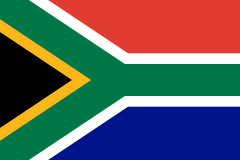Day of Reconciliation
| Day of Reconciliation | |
|---|---|

The National flag largely represents peace and unity.
|
|
| Also called | Reconciliation day |
| Observed by | Republic of South Africa |
| Date | 16 December |
| Next time | 16 December 2017 |
| First time | 16 December 1995 |
| Related to | Day of the Vow |
The Day of Reconciliation is a public holiday in South Africa held annually on 16 December. The holiday came into effect in 1994 after the end of apartheid, with the intention of fostering reconciliation and national unity for the country. The date was chosen because it was significant to both Afrikaner and African cultures. Government chose a meaningful date for both ethnic groups because they recognize the need for racial harmony.
The first time the Day of Reconciliation was celebrated as a public holiday was in 1995. The new government chose to represent national unity by choosing a date that had significance for "both the Afrikaner and liberation struggle traditions."
On Day of Reconciliation, cultural groups participate in parades and various festivities take place throughout the country. On Day of Reconciliation 2013, a statue of Nelson Mandela, the first black president of South Africa, was unveiled in Pretoria. Some of the communities take part in a walk which also serve as a memorial to Mandela. Other parts of South Africa have chosen to emphasize their need for racial harmony in their communities.
Each year has had a different theme. For example:
For Afrikaners, 16 December was commemorated as the Day of the Vow, also known as Day of the Covenant or Dingaan's dag (Dingaan's Day). The Day of the Vow was a religious holiday commemorating the Voortrekker victory over the Zulus at the Battle of Blood River in 1838, and is still celebrated by some Afrikaners. On that day, 470 Voortrekkers were attacked in an early morning battle led by Dingane's generals. The Voortrekkers defeated the Zulus who numbered in the 10-thousands and during the battle, 3,000 Zulu warriors were killed. The event became a "rallying point for the development of Afrikaner nationalism, culture and identity."
...
Wikipedia
